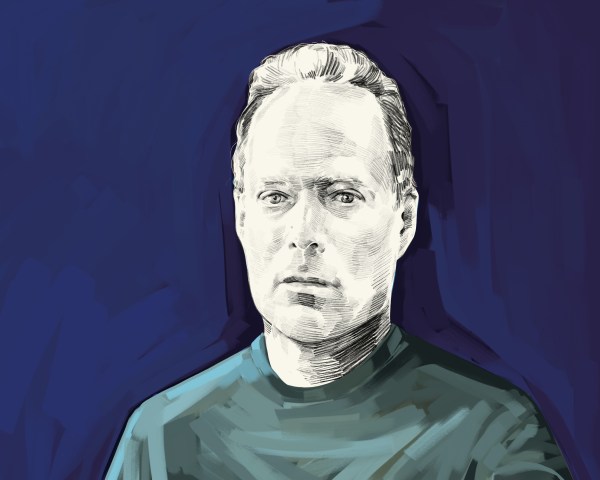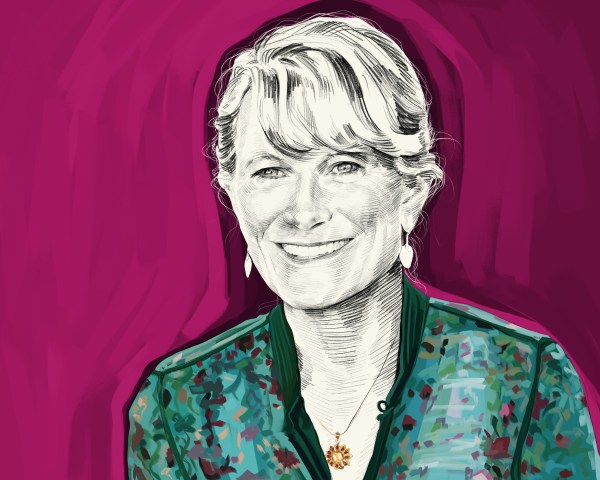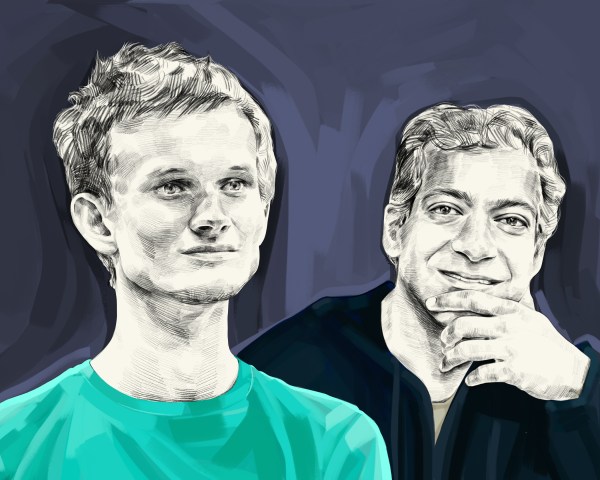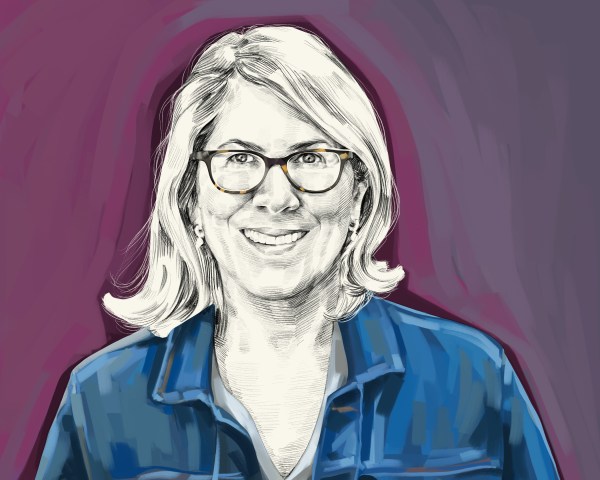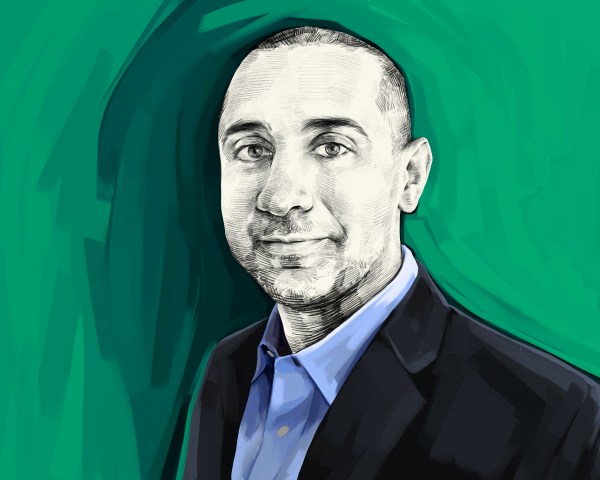Illustration via 99designs
“We really began to be tired of ourselves teaching this technology of inner awakening to the same people over and over. It’s like, how many times do you have to wake up in the morning? You’re awake. Do something.”
— Elizabeth Lesser
Elizabeth Lesser (@ElizabethLesser) is a bestselling author and the co-founder of Omega Institute, the renowned conference and retreat center located in Rhinebeck, New York. Elizabeth’s first book, The Seeker’s Guide, chronicles her years at Omega and distills lessons learned into a potent guide for growth and healing. Her New York Times bestselling book, Broken Open: How Difficult Times Can Help Us Grow, has sold almost 500,000 copies and has been translated into 20 languages. Her third book, Marrow, chronicles the journey Elizabeth and her younger sister went through when Elizabeth was the donor for her sister’s bone marrow transplant. Her newest book, Cassandra Speaks: When Women Are the Storytellers, the Human Story Changes, reveals how humanity has outgrown its origin tales and hero myths. Elizabeth has given two popular TED talks and is one of Oprah Winfrey’s Supersoul 100, a collection of a hundred leaders who are using their voices and talent to elevate humanity.
She co-founded Omega Institute in 1977—a time when a variety of fresh ideas were sprouting in American culture. Since then, the Institute has been at the forefront of holistic education, offering workshops and conferences in integrative medicine, meditation and yoga, cross-cultural arts and creativity, ecumenical spirituality, and social change. Each year close to 30,000 people participate in Omega’s programs on its campus, and more than a million people visit its website for online learning.
Please enjoy!
Listen to the episode on Apple Podcasts, Spotify, Overcast, Stitcher, Castbox, Google Podcasts, or on your favorite podcast platform.
Brought to you by Tonal smart home gym, Laird Superfood clean, plant-based creamers, and Allform premium, modular furniture. More on all three below.
The transcript of this episode can be found here. Transcripts of all episodes can be found here.
This episode is brought to you by Laird Superfood. Founded by big-wave surfer Laird Hamilton and volleyball champion Gabby Reece, Laird Superfood promises to deliver high-impact fuel to help you get through your busiest days. Laird Superfood offers a line of plant-based products designed to optimize your daily rituals from sunrise to sunset.
My two favorite products are their Turmeric Superfood Creamer and Unsweetened Superfood Creamer. I put one of them in practically everything. Both can really optimize your daily coffee or tea ritual, and a $10 bag will last you a long time. For a limited time, Laird Superfood is offering you guys 20% off your order when you use code TIM20 at checkout. Check out LairdSuperfood.com/Tim to see my favorite products and learn more.
This episode is brought to you by Tonal! Tonal is the world’s most intelligent home gym and personal trainer. It is precision engineered and designed to be the world’s most advanced strength studio. Tonal uses breakthrough technology—like adaptive digital weights and A.I. learning—together with the best experts in resistance training so you get stronger, faster. Every program is personalized to your body using A.I., and smart features check your form in real time, just like a personal trainer.
Try Tonal, the world’s smartest home gym, for 30 days in your home, and if you don’t love it, you can return it for a full refund. Visit Tonal.com for $100 off their smart accessories when you use promo code TIM21 at checkout.
This episode is brought to you by Allform! If you’ve been listening to the podcast for a while, you’ve probably heard me talk about Helix Sleep mattresses, which I’ve been using since 2017. They just launched a new company called Allform, and they’re making premium, customizable sofas and chairs shipped right to your door—at a fraction of the cost of traditional stores. You can pick your fabric (and they’re all spill, stain, and scratch resistant), the sofa color, the color of the legs, and the sofa size and shape to make sure it’s perfect for you and your home.
Allform arrives in just 3–7 days, and you can assemble it yourself in a few minutes—no tools needed. To find your perfect sofa, check out Allform.com/Tim. Allform is offering 20% off all orders to you, my dear listeners, at Allform.com/Tim.
What was your favorite quote or lesson from this episode? Please let me know in the comments.
SCROLL BELOW FOR LINKS AND SHOW NOTES…
Want to hear another episode with someone who endeavors to awaken the best in the human spirit? Listen to my conversation with Buddhist monk and meditation teacher Jack Kornfield in which we discuss hang gliding, monk training in Thailand, unpleasant mystical experiences, the difference between compassion and empathy, lovingkindness meditation, and more.
SELECTED LINKS FROM THE EPISODE
Connect with Elizabeth Lesser:
Website | Twitter | Facebook | Instagram
Cassandra Speaks: When Women Are the Storytellers, the Human Story Changes by Elizabeth LesserThe Seeker’s Guide by Elizabeth LesserBroken Open: How Difficult Times Can Help Us Grow by Elizabeth LesserMarrow: Love, Loss, and What Matters Most by Elizabeth LesserOmega InstituteSufism | Oxford Islamic Studies OnlineThe New YorkerThe Gift by HafizTales of the Dervishes: Teaching-Stories of the Sufi Masters over the Past Thousand Years by Idries ShahAn Esoteric View of the 1960s and ’70s | HuffPostRudolf Otto and the Concept of the Numinous | Oxford Research Encyclopedia of ReligionNaropa UniversityShambhala: The Sacred Path of the Warrior Mass Market Paperback by Chogyam TrungpaBuddhism | World History EncyclopediaWordPressShaker Museum | New Lebanon, NYWoodstock Festival10 Facts About the Ancient Library of Alexandria | Book RiotBennington CollegeFood As Medicine: It’s Not Just a Fringe Idea Anymore | The Salt, NPRSummer of Peace, Love, and Yiddish Song: The Legacy of New York’s Camp Boiberik | Smithsonian FolklifeThe Definitive Guide to Yoga for Beginners and Experts | HealthlineMachine Elf | Non-Alien Creatures WikiIs Ecumenism Biblical? Should a Christian Be Involved in the Ecumenical Movement (Ecumenicalism)? | GotQuestions.orgPracticing Innervism | OmegaWhat is Internal Family Systems? | IFS InstituteWomen, Power, Stories: An Interview with Author Elizabeth Lesser | An Injustice!God’s Grandeur by Gerard Manley Hopkins | Poetry FoundationMedical Definition of Hippocratic Oath | MedicineNetDo No Harm, Take No Shit | Mindful NecessitiesElizabeth Lesser: Say Your Truths and Seek Them in Others | TED TalkInterview: Elizabeth Lesser | Lessons of the Soul | Best SelfThe Open Secret | OprahIn Grief, Try Personal Rituals | The AtlanticOn Grief and Grieving: Finding the Meaning of Grief Through the Five Stages of Loss by Elisabeth Kubler-Ross and David KesslerHow To Die Before You Die: Meaning and Meditation | The Joy WithinA Letter of Consolation by Henri J. M. NouwenAnita Hill Accuses Clarence Thomas | HistoryThe Vagina Monologues by Eve EnslerWomen & Power Past Events | OmegaMe Too MovementAfter Weinstein, Trump Sexual Misconduct Accusers Demand Action | BBC NewsBlack Lives MatterThe Prince by Niccolo MachiavelliThe Art of War by Sun TzuHow Was Larry Nassar Able to Abuse So Many Gymnasts for So Long? | The GuardianCassandra in Greek Mythology | Greek Legends and MythsGloria Steinem Reflects on Women’s Liberation 50 Years Later | TimeAmateur: A Reckoning with Gender, Identity, and Masculinity by Thomas Page McBeeThe Tending Instinct: Women, Men, and the Biology of Relationships by Shelley E. TaylorHow the Fight-or-Flight Response Works | Verywell MindTend and Befriend Theory | UCLAList of Central Park Statues | Central Park in Bronze
SHOW NOTES
Note from the editor: Timestamps will be added shortly.
Why visiting Omega Institute might feel a little like starring in your own Disney film.Who is Pir Vilayat Inayat Khan?Coming from an atheistic background, how did Elizabeth find herself on a spiritual path when she first encountered Pir Vilayat Inayat Khan, and what did he help her discover?What did the prototype look like for Omega Institute, and how did Elizabeth and her co-founders decide on what to include versus exclude?What issues made the early Omega Institute pioneers rethink their intention of living communally?How was the curriculum safely and legally aligned with the tagline of “awakening the best in the human spirit” during this time, and how were teachers selected?On the exploration of ecumenical traditions and innervism.What is the movement from me to we?How would Elizabeth define “spiritual” — or does she prefer another term?Elizabeth talks about sharing a “soul marrow transplant” with her sister Maggie, and how she discovered a particularly poignant needlepoint slogan after Maggie’s death that she’s adapted to her own meditation: “Do no harm and take no shit.”What is Authenticity Deficit Disorder?In my own experience, it’s not always an answer that helps us unburden ourselves of what Rumi called an open secret, but the act of asking. Does Elizabeth agree?Recommendations for people going through the grieving process — especially in a culture that doesn’t really afford us time to mourn.The importance of, as Henk Kraaijenhof has said, doing as little as needed, not as much as possible.What is the origin story of Elizabeth’s latest book, Cassandra Speaks: When Women Are the Storytellers, the Human Story Changes?Does Elizabeth believe an impulse toward aggression is inevitable in women who acquire power? If so, can it be mitigated to avoid the abuses exercised by many men in power? Why do people in power tend more toward the fight or flight school of thought over tend and befriend?What impact does Elizabeth hope to have with Cassandra Speaks? How does she believe that full-hearted fatherhood might save the world?What would Elizabeth’s billboard say?Parting thoughts.
PEOPLE MENTIONED
Jerzy and Aniela GregorekPir Vilayat Inayat KhanStephan RechtschaffenHafizIdries ShahChogyam RinpocheThe Dalai LamaMatt MullenwegWavy GravyDeepak ChopraElisabeth Kubler-RossDavid KesslerTerence McKennaJack KornfieldGerard Manley HopkinsTara BrachMaggie LakeBuddhaKuan YinRumiPema ChödrönHenri NouwenHenk KraaijenhofMerlene Joyce OtteyAnita HillClarence ThomasEve EnslerDonald TrumpNiccolò MachiavelliSun TzuFriedrich NietzscheCassandraEveLarry NassarRosemarie AqualinaPandoraGloria SteinemWalter CannonShelley TaylorWilliam Tecumseh Sherman

